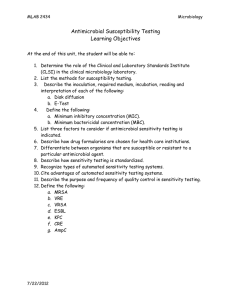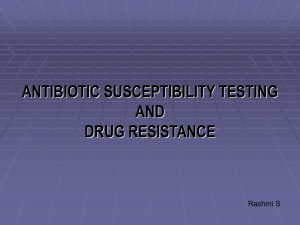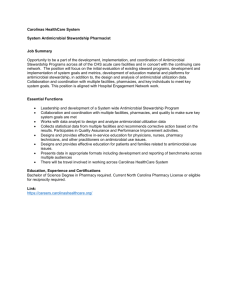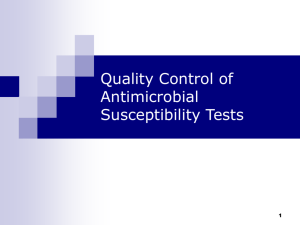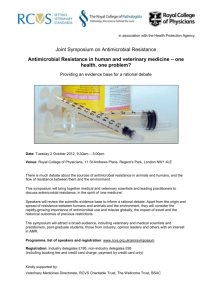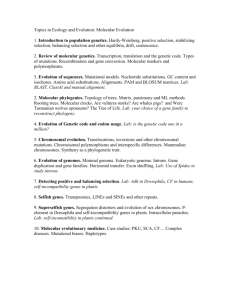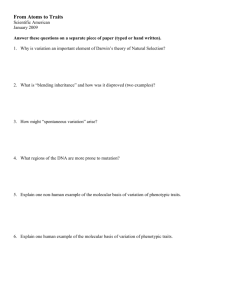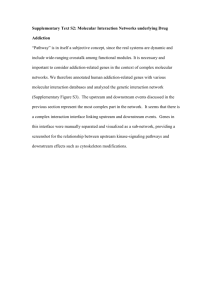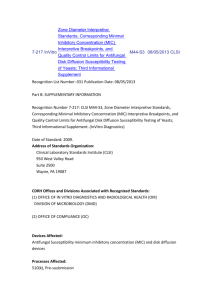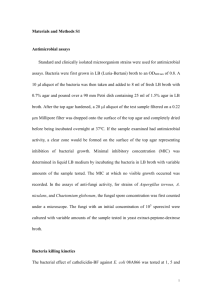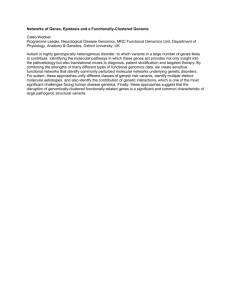Molecular Susceptibility Testing Versus Traditional Methods: An
advertisement
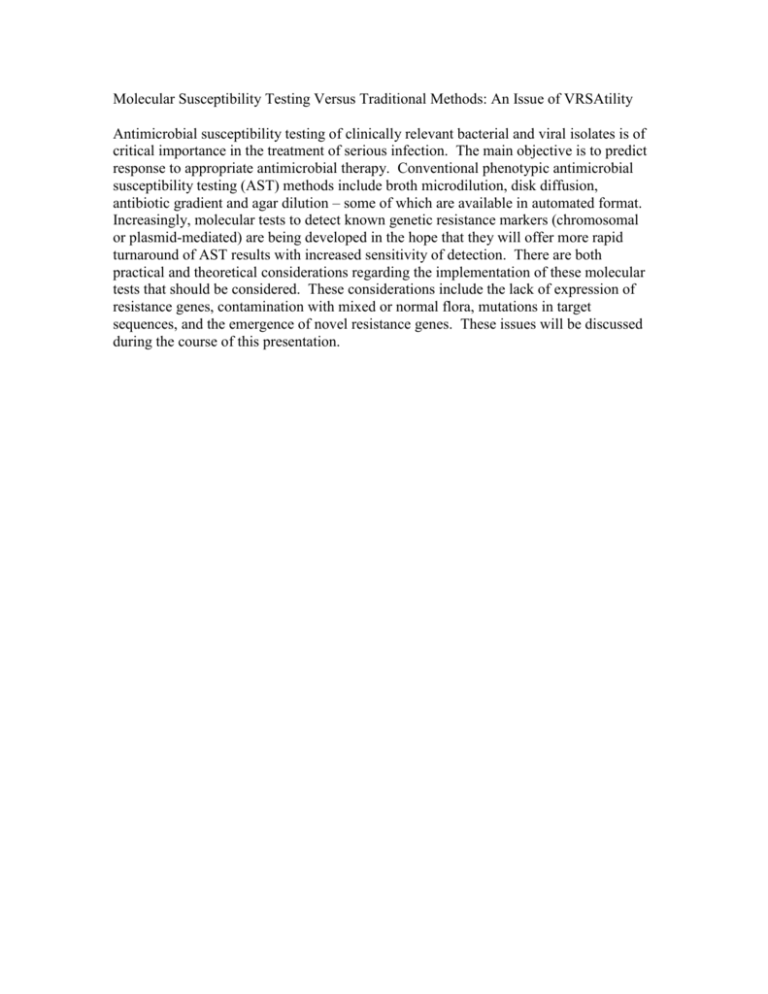
Molecular Susceptibility Testing Versus Traditional Methods: An Issue of VRSAtility Antimicrobial susceptibility testing of clinically relevant bacterial and viral isolates is of critical importance in the treatment of serious infection. The main objective is to predict response to appropriate antimicrobial therapy. Conventional phenotypic antimicrobial susceptibility testing (AST) methods include broth microdilution, disk diffusion, antibiotic gradient and agar dilution – some of which are available in automated format. Increasingly, molecular tests to detect known genetic resistance markers (chromosomal or plasmid-mediated) are being developed in the hope that they will offer more rapid turnaround of AST results with increased sensitivity of detection. There are both practical and theoretical considerations regarding the implementation of these molecular tests that should be considered. These considerations include the lack of expression of resistance genes, contamination with mixed or normal flora, mutations in target sequences, and the emergence of novel resistance genes. These issues will be discussed during the course of this presentation.
